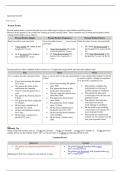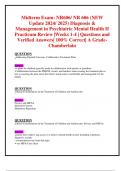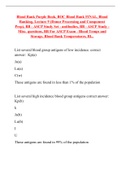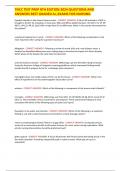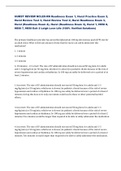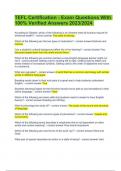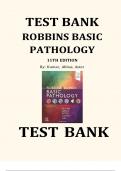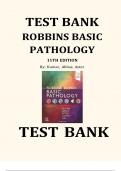Tentamen (uitwerkingen)
Grammar for OET Verb Tenses Present Perfect Present perfect tense is used to describe an event which starts in the past and continues until the present. Mastery of this pattern is an essential for writing successful referral letters
- Vak
- Instelling
Grammar for OET Verb Tenses Present Perfect Present perfect tense is used to describe an event which starts in the past and continues until the present. Mastery of this pattern is an essential for writing successful referral letters
[Meer zien]
